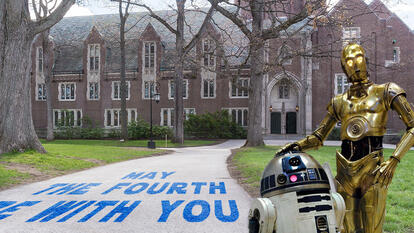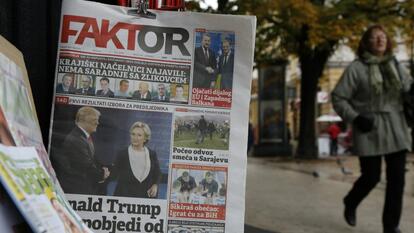President Johnson Writes Boston Globe Op-Ed: “Speaking with the Enemy 101”

In a September 6 op-ed in the Boston Globe, President Paula A. Johnson explains why students should be equipped to talk across difference, and she shares her vision of a “Curriculum of Connection” as a way to give students a robust rhetorical toolkit that will help steer them toward shared values and common ground. Below is an excerpt:
During her four years at an East Coast liberal arts college, Ali Saueressig [’19] always felt the tug of home, deep in the rural Midwest. For all her commitment to progressive causes—fighting climate change prominent among them—she loved the place where she’d grown up, a conservative Christian community of dairy farmers. She thrived at her elite institution, but the disconnect gnawed at her: “What’s the purpose of what I’m studying if I can’t talk to people back home?”
With the approach of the 2020 elections, our white-hot national discourse is only amping up. Tragedies that should bring us together drive us further apart. Amidst the rise of white nationalism and anti-immigrant fervor, we seem to be losing our way—and our humanity.
Like every concerned citizen, I’ve been grappling with how to best respond to the crisis of this moment. And as a college president, I’ve been especially focused on the role of higher education in this age of animosity.
Our nation has long looked to colleges and universities to serve a range of public goods: To train a modern workforce, to prepare students to make a living, and to push forward the frontiers of knowledge through research and development, to name a few.
But at this historical moment, I believe we would do well to home in on another mission: equipping students with the tools they need to talk across difference—politics, race, economic class, and the myriad other fault lines of 21st-century life. To prepare them to “talk to people back home”—as well as far beyond.
What might this look like? For Ali Saueressig it entailed a seminar in public writing, where she interviewed a well-known evangelical pastor about “Creation Care”—a movement inspired by the belief that the environment is God’s creation and requires human protection. She explored how to talk about climate change in ways that would resonate with the conservative farmers she’d grown up with. …
To be sure, an academic course is just one way to prepare students for the duties of citizenship. What I’ve come to think of as the Curriculum of Connection cannot exist within a single silo. To the contrary, it needs to infuse every aspect of campus life, from how we teach and interact with students in the classroom; to how we organize student affairs and government; to how we support and foster residential life.
Continue reading the full article in the Boston Globe.
Photo: At Wellesley’s September 3 convocation, kicking off the College’s 145th academic year, President Paula A. Johnson shared her thoughts about the “Curriculum of Connection” and building bridges across divides with first-year and returning students.



